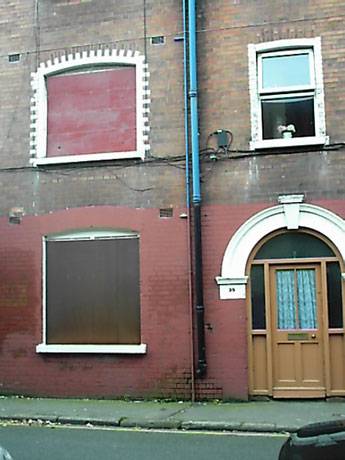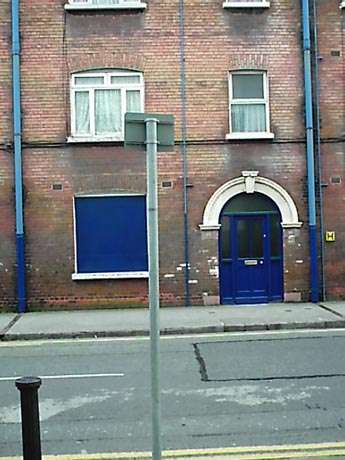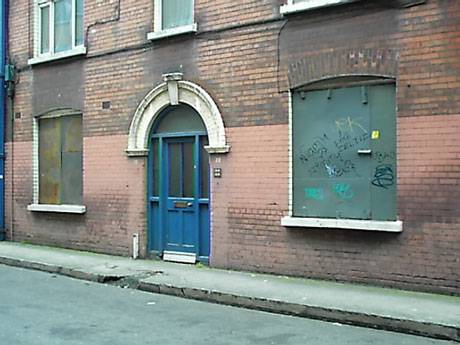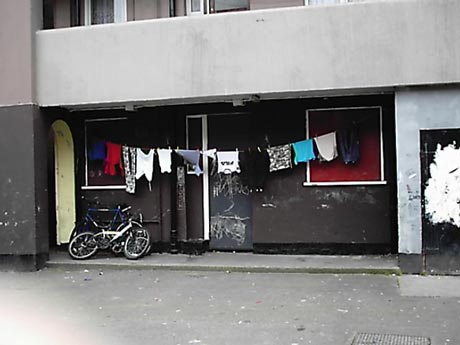FFF vs PPP: Fight For the Flats or Public Private Partnerships?
 dublin |
housing |
feature
dublin |
housing |
feature  Monday November 22, 2004 20:15
Monday November 22, 2004 20:15 by kevin - imc éire
by kevin - imc éire
Dublin City Council to sell off housing stock.
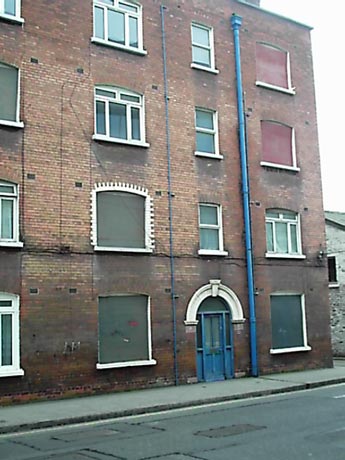 Last week Dublin City Council held their "Conference on Future Directions for Future Housing Policy" in Croke Park. The issue that was of most interest & concern at the conference was the Council's future change in policy to allow tenants of social housing flats to buy their own property.
Last week Dublin City Council held their "Conference on Future Directions for Future Housing Policy" in Croke Park. The issue that was of most interest & concern at the conference was the Council's future change in policy to allow tenants of social housing flats to buy their own property.
Dublin City Council owns over 16,000 flats in Dublin (and approximately 10,000 houses on top of that). The Council allows people who live in their houses to buy them out, and the price depends on how long the tenant has lived there, how much rent they have paid over time, the condition & location of the property, etc.
The sale of Council flats inevitably means that many complexes will become privatised. The Council's proposals have not been finalised yet, but some of their plans involve turning over some estates to housing associations, in the same way the flats at Killarney St/Buckingham St were given over to Clúid. Other blocks, in prime inner-city locations, could be turned over to private management companies. The Council could benefit to the tune of €3.3 billion, which is a conservative estimate of the flats' value at current market prices. John FitzGerald & Brendan Kenny (city managers) have previously favoured PPPs (Public-Private Partnerships) in the redevelopment of inner-city complexes.
In the interim before this legislation is agreed on and decided (presumably by the Councillors), the Council seems to be purposely leaving many of its units derelict and empty. Why is this? There are over 7,000 people on the housing list in Dublin alone, and the need for social housing is greater than ever in a city where rent has spiralled upwards in the last five to ten years. In its policy documents, it puts good estate management as one of its core policies in relation to maintenance of its housing stock, but anecdotal evidence from tenants while taking these pictures suggests otherwise.
In March this year I walked the exact same route that these photos were taken on, and practically all of them were boarded up back then. With a large waiting list, surely the Council can easily find prospective tenants that can occupy these units. Instead it seems that the Council is waiting for the privatisation green light so it can sell the units off. No tenants means a direct route to the market. (The exception to this in the photos are the six together at Holles Street - these have been boarded up for a long time but the block is now marked for demolition/redevelopment.)
The units at Moss Street and Luke Street have been left go derelict for a long time. In one block, only one of out eight units is now occupied. While taking photos I talked to one resident of the Moss Street flats, who said that she had been there for 17 years. The Council had left the place fall apart, she said, and constantly neglected to respond to basic repairs that tenants had requested - but if a tenant was ever late with rent, the Council was very quick to respond.
The effect of leaving units derelict and empty means that remaining tenants feel isolated and vulnerable, so when the option to sell appears, they are happy to take it.
I talked to six or seven people while out taking these photos (people generally tend to approach you when they see you taking photographs of their homes!), and I explained to them what I was doing, and we talked about the upcoming privatisaion. Roughly half felt it was a good idea; if people wanted to sell and move out then they should be free to do so. The people who lived in Council houses had the option to own their own home, so those who lived in the flats should have that choice too.
Others, those who lived around Dublin 2 and 6 more, were against the privatisation. One woman felt that if people moved away, and "business people" moved in, then the community would be affected. "If professional business people buy the flats then they wont look after older and vulnerable people here. They're only interested in living near [Stephens] Green so they can walk to the office." She felt that new residents would not be interested in creating a sense of community, and treat the flats as a "fancy city pad" instead of a home.
Another woman agreed with this, saying that if people had the option to sell, then they would - but older people who had lived in the same place would not want to leave, or would not be able to, and they would suffer as a result of people heading to the suburbs.
All of the tenants I talked to though agreed that the Council leaving units derelict was criminal, and people should be housed in them immediately.
Related Links:
NABCO (National Association of Building Co-Operatives)
Clúid Housing Association
Irish Council for Social Housing
Sonas Housing Association
DCC report
18 arrested during protest outside PPP conference in Dublin 3 years ago
